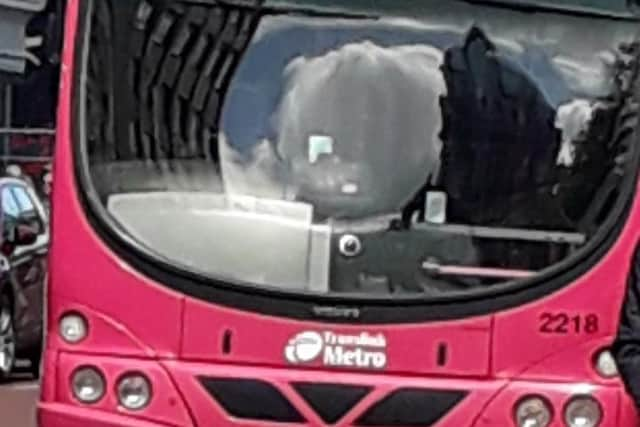Antrim and Newtownabbey Council told £81m spent ‘bussing’ children to schools in Northern Ireland
and live on Freeview channel 276
Peter Osborne a director of the Integrated Education Fund, told the borough council’s Community Planning Committee the sum of £81m is spent ‘bussing’ children to schools in Northern Ireland.
He told councillors that parents in the province travel 130m miles every year driving pupils to schools “further than necessary”.
Advertisement
Hide AdAdvertisement
Hide AdMr Osborne said that the current Independent Review of Education “gives potential of a road map for change” and “something we have not had for generations”.


He reported that 67.8 per cent of pupils in the controlled education sector are Protestant while 1.1 per cent is Catholic and in the maintained sector, 95 per cent are Catholic and 1.1 per cent, Protestant.
He noted that within pre-school provision, 47 per cent of children are “totally segregated”.
“In Northern Ireland, parents travel 130m miles more than necessary every year to take children to schools further away than they might otherwise be. £81m is spent busing children to schools further away,” he said.
Advertisement
Hide AdAdvertisement
Hide AdHe continued: “In Northern Ireland, there are dozens of villages with schools within a mile of each other that are at risk of closure.”
Instead of amalgamation, he commented that parents then send children to schools from their own background and as a result, villages will “become a single identity”.
“The public have shown that they want an end to segregation with 78.09 per cent wanting integration. The Integrated Education Fund wants people to be aware to the review taking place.
“We want to end duplication and segregation that does not do our society any good. It is not a normal situation. It leads to all sorts of social problems and economic issues.”
Advertisement
Hide AdAdvertisement
Hide AdMr Osborne went on to say that in Northern Ireland, schools are exempt from fair employment legislation.
He told councillors of Glengormley High School’s bid to become integrated. Click here
The Integrated Education Fund says it was “delighted with the strong parental support” for integration at Glengormley High School, where a ballot returned a “resounding ‘Yes’ vote for the school to begin the journey of working towards achieving integrated status”.
IEF chief executive Tina Merron said recently: “This is a fantastic endorsement from the Glengormley High School community for the model of education which brings children of all backgrounds, beliefs and traditions to learn alongside each other – and from each other.
Advertisement
Hide AdAdvertisement
Hide Ad“There is now the potential to offer hundreds more integrated school places to families in the Newtownabbey and north Belfast area to meet the evident demand.”
A poll of the Whiteabbey area in 2018 revealed that 22.6 per cent of parents rated a school which reflects a particular single faith or cultural background as important and 77.4 per cent rated as important a school that is openly welcoming to all sections of the community and to all faiths.
The poll also showed that 54.8 per cent of parents indicated they would support their child’s school becoming integrated.
Commenting on the school transport bill, Airport Ulster Unionist Alderman Paul Michael BEM commented on the “large slice” of pupils from Crumlin who “support other schools in Belfast”.
Advertisement
Hide AdAdvertisement
Hide AdBallyclare party colleague Councillor Vera McWilliam noted “great benefits of integrated education”.
She added: “It is going to take a number of years for everybody to come round to that way of thinking.”
Mr Osborne commented that integrated schools tend to be “significantly over-subscribed and turn away many hundreds of pupils”.
The establishment and delivery of an Independent Review of Education is a key commitment in the New Decade New Approach (NDNA) document agreed by the main political parties in Northern Ireland in January 2020.
Advertisement
Hide AdAdvertisement
Hide AdThe independent and external review will have “a focus on securing greater efficiency in delivery costs, raising standards, access to the curriculum for all pupils and the prospects of moving towards a single education system”.
Michelle Weir, Local Democracy Reporter
--
A message from the Editor:
Thank you for reading this article. We’re more reliant on your support than ever as the shift in consumer habits brought about by Coronavirus impacts our advertisers. Please consider purchasing a copy of the paper. You can also support trusted, fact-checked journalism by taking out a digital subscription of the News Letter.